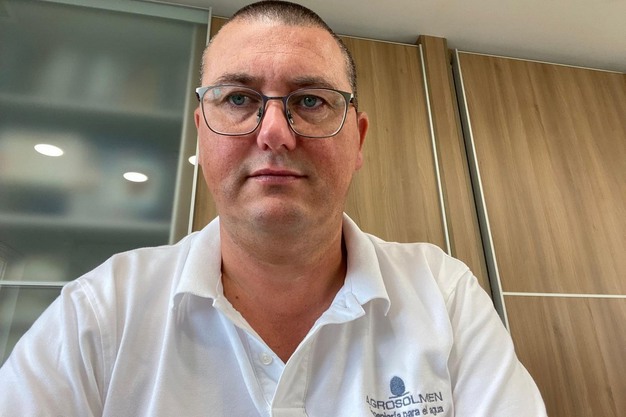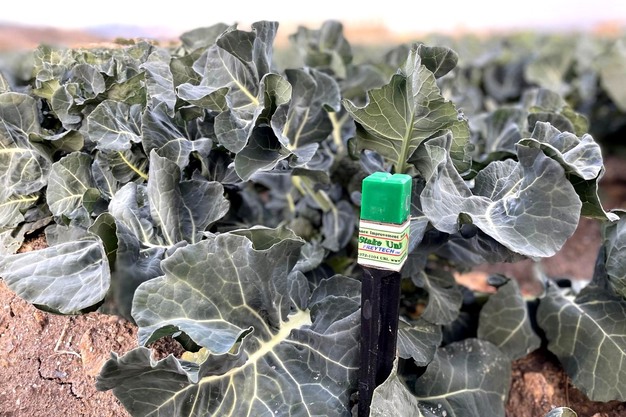The agricultural sector is threatened by climate change and water shortages. Companies specializing in making open ground crops more efficient are gaining ground as weather conditions worsen. This is the case for water and fertilizer saving technologies.
"Agrobusinesses need to optimize crop irrigation and get the highest yield with minimum water and energy consumption. That is why we specialize in integrated irrigation installations, from ponds to pumping, automation, and remote control," says Manuel Soler, technical director of Agrosolmen.
 © Agrosolmen
© Agrosolmen
"In a lettuce cycle, a correctly designed and automated installation, combined with excellent agronomic management backed by sensorization and ICT, can help reduce consumption from 3,000 m³/ha to about 1,200-1,500 m³/ha. In other words, water savings of more than 50% can be achieved in a single lettuce cycle. In general, a good, efficient, and well-managed irrigation system can easily achieve water savings of around 30%," says the manager.
"We work on around 150 projects a year, and we have around a thousand clients, mainly in Spain. We excel in the provision of efficient, modular, and flexible irrigation systems for open ground farms growing products like broccoli, melon, lettuce, watermelon, artichoke, or cauliflower."
"Only 30% nitrogen fertilizer".
"One of the newest solutions we are working on is the EBD (Environmental Balance Device) technology. This is a device that houses a combination of minerals whose crystallization channels sufficient energy to create a healthier environment for the soil's indigenous micro-organisms," says Soler.
"By improving their environment and allowing them to grow in number, the microorganisms can feed on pathogens and pollutants. They are even able to decontaminate ponds or soils. The use of organic matter as a plant nutrient is also optimized."
This EBD technology "accelerates the natural decontamination process. We provide a healthier environment for the microorganisms, so their population increases and they decontaminate more. We have seen that the crops develop better and suffer fewer health issues," he says.
 © Agrosolmen
© Agrosolmen
"We are also promoting micro-organism activity in the soil by limiting nitrogen fertilizer use to just 30% of what is normally needed. We can save on chemical products and energy costs, improve the agricultural ecosystem, and reduce the use of tractors and chemicals. In short, the environment benefits greatly."
The manager says that "encouraging the activity of micro-organisms can reduce the need for fertilizers in the soil. Without a doubt, producers in Murcia are very capable of working with the scarce resources they have, and they want their soil to be as healthy as possible."
"For the research, we have asked for support from the public administration, and we hope to get a positive response, but we are still in the bureaucratic phase, which is quite extensive. We believe that facilitating the optimization of water use and saving on chemical and energy resources is the only way forward for the agro-industry if we want it to survive," he says.
For more information:
Manuel Soler
Agrosolmen
Tel.: +34 639 33 03 26
[email protected]
www.agrosolmen.es
